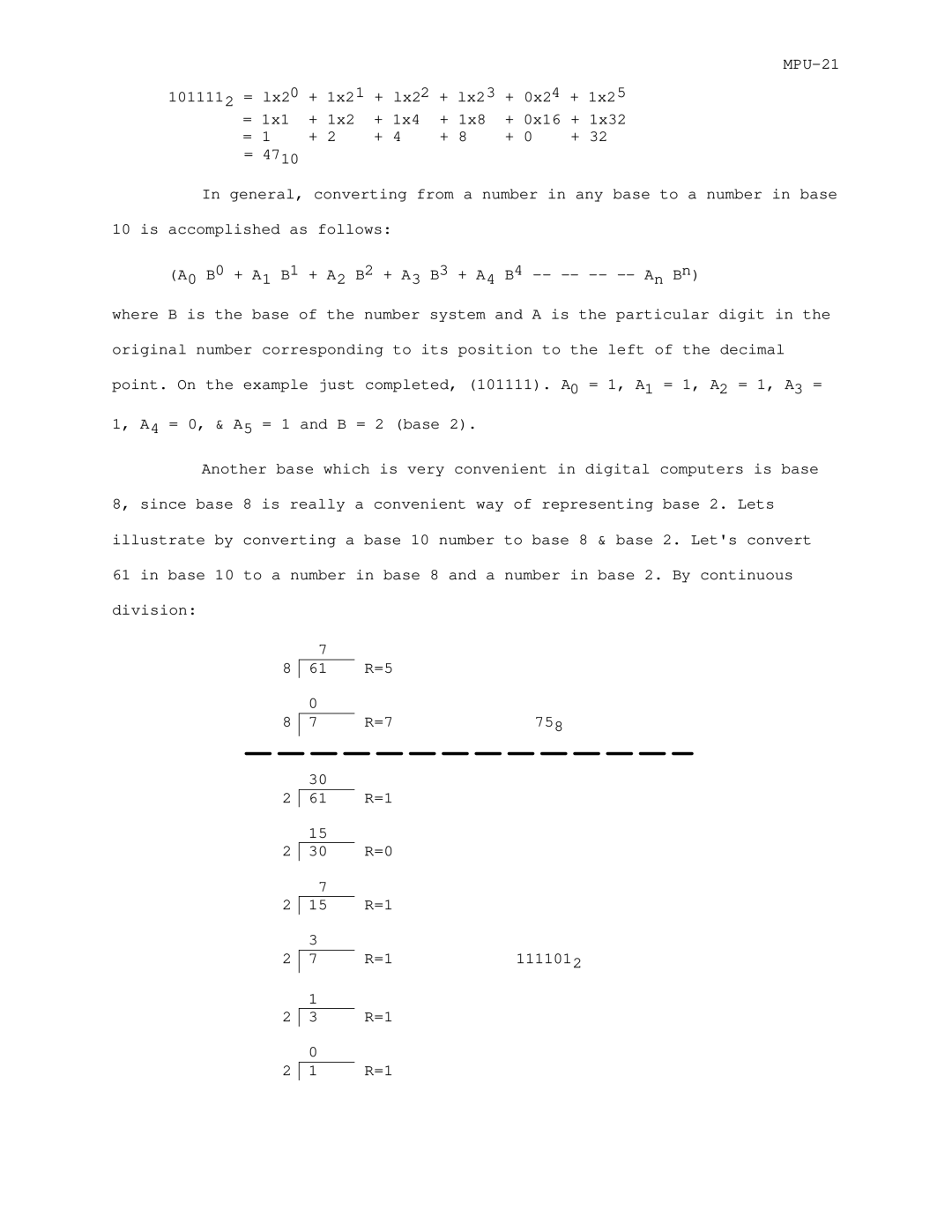1011112 = lx20 | + 1x21 + lx22 + lx23 | + 0x24 + 1x25 | |||
= 1x1 | + 1x2 | + 1x4 | + 1x8 | + 0x16 | + 1x32 |
= 1 | + 2 | + 4 | + 8 | + 0 | + 32 |
= 4710 |
|
|
|
|
|
In general, converting from a number in any base to a number in base
10 is accomplished as follows:
(A0 B0 + A1 B1 + A2 B2 + A3 B3 + A4 B4
where B is the base of the number system and A is the particular digit in the
original number corresponding to its position to the left of the decimal
point. On the example just completed, (101111). A0 = 1, A1 = 1, A2 = 1, A3 =
1, A4 = 0, & A5 = 1 and B = 2 (base 2).
Another base which is very convenient in digital computers is base
8, since base 8 is really a convenient way of representing base 2. Lets
illustrate by converting a base 10 number to base 8 & base 2. Let's convert
61 in base 10 to a number in base 8 and a number in base 2. By continuous
division:
8
8
2
2
2
2
2
2
7 | R=5 |
|
61 |
| |
0 | R=7 | 758 |
7 | ||
30 | R=1 |
|
61 |
| |
15 | R=0 |
|
30 |
| |
7 | R=1 |
|
15 |
| |
3 | R=1 | 1111012 |
7 | ||
1 | R=1 |
|
3 |
| |
0 | R=1 |
|
1 |
|
